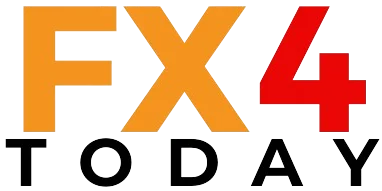Introduction
Selecting the right forex broker is a critical decision for any trader. Your broker will not only execute your trades but also provide you with the tools, resources, and support needed to succeed in the forex market. With so many options available, choosing the best forex broker can be a daunting task, especially for beginners. Factors such as regulation, trading platforms, fees, customer service, and available resources play a significant role in this decision. This article aims to guide you through the essential considerations for choosing a forex broker that aligns with your trading needs and goals.

Understanding the Role of a Forex Broker
A forex broker acts as an intermediary between individual traders and the interbank forex market, facilitating the buying and selling of currency pairs. Brokers offer various services, including trading platforms, market analysis, educational resources, and customer support. The right broker can enhance your trading experience, while the wrong one can hinder your success.
Why Choosing the Right Forex Broker Matters
- Security of Funds: Your broker will hold your trading capital, so it is crucial to choose a regulated and reputable broker to ensure the security of your funds. Regulatory bodies such as the Financial Conduct Authority (FCA), the Australian Securities and Investments Commission (ASIC), and the National Futures Association (NFA) set standards to protect traders.
- Trading Costs: Different brokers have varying fee structures, including spreads, commissions, and overnight financing rates. These costs can significantly impact your profitability, making it essential to choose a broker with competitive rates.
- Trading Platforms: The trading platform is your primary tool for executing trades, analyzing the market, and managing your account. A reliable, user-friendly platform with advanced features can improve your trading efficiency.
- Customer Support: Effective customer support is vital, especially when you encounter technical issues or need assistance with your account. A broker with responsive and knowledgeable customer service can provide the help you need promptly.
- Range of Services: Brokers offer different services, such as educational materials, market analysis, and trading tools. Access to these resources can enhance your trading skills and knowledge, contributing to your overall success.
Key Factors to Consider When Choosing a Forex Broker
- Regulation and Reputation: Ensure the broker is regulated by a reputable authority. Regulation provides a level of security and transparency, ensuring the broker adheres to industry standards. Research the broker’s reputation by reading reviews and checking their history of compliance and customer satisfaction.
- Trading Costs: Compare the spreads, commissions, and other fees charged by different brokers. Look for brokers with low trading costs to maximize your profits. Consider both fixed and variable spreads, as well as any hidden fees.
- Trading Platforms: Evaluate the broker’s trading platform to ensure it meets your needs. Key features to look for include ease of use, reliability, charting tools, technical indicators, and the ability to execute trades quickly. Popular platforms like MetaTrader 4 (MT4) and MetaTrader 5 (MT5) are widely used and trusted by traders.
- Account Types: Brokers offer various account types to cater to different trading styles and capital levels. Choose a broker that provides account options that suit your trading strategy, whether you are a beginner or an experienced trader.
- Leverage and Margin: Leverage allows you to control larger positions with a smaller amount of capital. While high leverage can increase profit potential, it also magnifies risk. Ensure the broker offers leverage levels that align with your risk tolerance and trading strategy.
- Customer Support: Test the broker’s customer support by contacting them with questions or concerns. Evaluate their responsiveness, knowledge, and willingness to assist. Good customer support can resolve issues quickly and enhance your trading experience.
- Educational Resources: Access to educational resources such as webinars, tutorials, articles, and market analysis can help you improve your trading skills. Choose a broker that provides comprehensive educational materials to support your learning.
- Deposit and Withdrawal Options: Check the broker’s deposit and withdrawal methods to ensure they are convenient and secure. Consider processing times, fees, and any restrictions on fund transfers.
- Trading Instruments: Ensure the broker offers a wide range of trading instruments, including major, minor, and exotic currency pairs. Access to diverse instruments can provide more trading opportunities and help diversify your portfolio.
- Additional Features: Some brokers offer additional features such as automated trading, social trading, and copy trading. These features can enhance your trading experience and provide new ways to participate in the forex market.

Conclusion
Choosing the best forex broker for your trading needs is a crucial step toward achieving success in the forex market. A well-regulated and reputable broker with competitive trading costs, a reliable platform, excellent customer support, and comprehensive educational resources can significantly enhance your trading experience and profitability.
Take the time to research and compare different brokers, considering factors such as regulation, trading costs, platforms, account types, leverage, customer support, educational resources, deposit and withdrawal options, trading instruments, and additional features. By carefully evaluating these aspects, you can find a broker that aligns with your trading goals and preferences.
Remember, the right forex broker should provide you with the tools, resources, and support needed to navigate the forex market effectively. With the right broker by your side, you can focus on developing your trading skills, implementing your strategies, and achieving your financial objectives.




